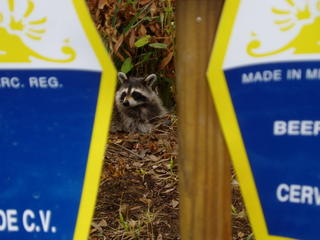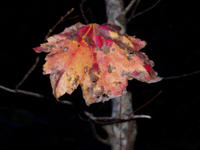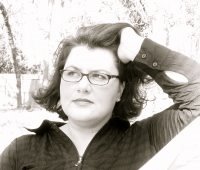We watch the newscasts and see the devastation. We hear the first-person accounts of those who have endured, who hung on, of those who remain thankful. We know in the backs of our minds that the business owners, the people with beach-front property, the average-income earners have property protection, investments, savings. We seem to know, some how, that they'll be ok in the long run. But I know there are hundreds, no, thousands, of people we're not hearing from, the people in the deep rural areas who had no choice but to stay put. These people can hardly make their way to a store to spend a few food stamps so evacuating an area to avoid harm's way was never an option.

The Ward Home Store which used to be: the old train depot; where I'd run to buy penny bubble gum; the place I'd visit with Bob Ward, the proprietor and direct descendent of the town's founder.
If you've never truly been in the deep south, this may all sound overly dramatic. If you think the south is merely fantastic college football; the hustle and bustle of hot night-life in the French Quarter; or a few states where all the wrong-doings of the old days are gone, you're sadly mistaken.

One of many rusted tin roofs. This one atop a barn at the Hay House.
As much as I love going to Ward to reconnect with my roots and visit family, I am oftentimes heartbroken as I see the real life that exists daily. The poor, the oppressed, the racism, the decay, it's all there. A couple years ago I met an old man, Henry, who might have made it through grade school, but I wouldn't wage a bet on that. Henry, a thin, somewhat crumpled black man with a few teeth left in his mouth, knows my father from way back. Everyone in the area knows everyone whether they're black or white. Henry was especially happy to see me and my father drive by his house, situated on a dirt road, one afternoon. My papa stopped to say hello when he saw Henry teetering out of his rustic shed. This shed looked like his house, only smaller. Rusted tin roof, old wood slats that stood as walls. It wasn't much and I'm not sure it was even his, but it was home all the same. As is often the case, I couldn't understand much of what Henry was saying to my father. The dialect used in the area makes it very hard for me to distinguish what people are saying and that is true of what my father and relatives say most of the time. By judging the smiles on their faces and the positive nodding, I knew the conversation was pleasant. Later on, I asked my father what was said. Basically, I needed him to translate. It was then that I learned that Henry was illiterate. He couldn't read one word but had learned to write his name. Henry had asked my father for a visit some time soon because he wanted to hear the word. What I didn't know until then was that my father would read the bible to Henry from time to time since he couldn't read it himself. It was then that I got a huge dose of reality. I quickly learned that the impoverished south isn't just a statistic used to emphasize economics on a newscast. It's an affliction that I'd never witnessed first hand until I drove up to its doorstep.

A typical road in Sumter County, AL.
I am reminded of this, of the many Henry's out there who are struggling to survive a day right now. They are in my heart, my thoughts and my hopes for quick relief.


 autumn
autumn










